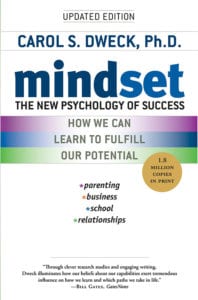
Life is a long journey of personal development. One can always grow and get better. Struggling in his business to make sales, natural introvert Ron Hori learned to be comfortable speaking to groups of people and socializing. Showing how introverts can rock sales, he shares the advantages introverts have in a sales situation and how he developed more confidence, becoming one of Eric Lofholm’s best students ever, a sales trainer, and a representative of ELI’s global sales training company. Ron also shares the skills he teaches his clients to help them face their challenges with closing.
—
Watch the episode here
From Being A Natural Introvert To Being Successful In Business With Ron Hori
I want to remind you to go over and take the Promote Profit Publish Quiz. You can find that at www.PromoteProfitPublishQuiz.com. Find out where your skillset lies and where you need to improve. You’re going to want to take a look at that quiz and find out what you need to plan for 2020. I’m excited about our guest. I know you’re like, “I hear this every time. Say something different.” One of the things that I hear over and over from people is how introverted they are. Then they have to go out. They become entrepreneurs and they have to sell, and how terribly scary that is. My guest is Ron Hori. He is a natural introvert who learned how to be comfortable speaking to groups of people and socializing. He struggled at the beginning of his business to make sales and learning that selling is a learned skill. He can relate to introverts who are struggling in sales because he’s been there. He’s done this himself.
He’s been a sales trainer since 2012. He represents Eric Lofholm International also known as ELI, a global sales training company. He enjoys working with people. Not only to find out their ideal customer to elegantly make more sales. He’s had a twenty-year career in high tech project management and software development and support. From the company he was at, he took a package to leave to focus on sales more in his home business. He has basic and advanced software sales skills. After twelve months, he was invited to be an independent sales trainer by the president of the company. That’s how much he improved over time. He went to college at UCLA. He went to the University of Hawaii and graduated from UC Santa Cruz with a degree in Psychology and has spent four years in the US Air Force where he learned computer programing. That led him to his career in Silicon Valley. Welcome, Ron.
Let’s rock and roll.
That’s pretty interesting the way that you got from where you were. I would imagine being in high tech that there were a lot of introverts or if not introverts, at least overly analytical software programmers who weren’t eligible to sell.
That’s true. When I was in high school, I was good at math and science. I thought, “I’ll major in Engineering in college.” I have quite a strong analytical streak. Sometimes I say I’m a recovering analytical. I have to remind myself to stop at a certain point when I get too deep. Let’s say I’m creating a PowerPoint and I’m saying, “I don’t need to adjust this font. I don’t need to adjust these colors. Stop, it’s good enough.” I was wrong about people who were geeks and nerds in a nice way, skilled and technical. When I was working in Silicon Valley in high tech, I was not in sales or in marketing. I can briefly tell you a story when I was in grammar school, middle school and high school how I had to break out of my shell. When I was in high tech, I was part of the analytical genre in terms of coding skills and project management. It had nothing to do with sales at all. It is definitely a learned skill.
I was at an entrepreneur event where people are talking about their new inventions. A metallurgical engineer walked up and started telling me about how he designed the electrical motherboard or whatever it was. I was like, “Where are the cookies?” I’m sure that amongst themselves this is an interesting conversation but it wasn’t for me. When you say you’re a natural introvert, how did that lead you to sales? That seems it’s the polar opposite of being an introvert.
The number one way to develop more confidence is to learn public speaking. Share on XIt starts back when I was in grammar school and junior high. One thing I learned is there’s a difference between being an introvert and going to what advantages introverts have in a sales situation. There’s a difference between being an introvert and being shy. Shy means you have anxiety being around people. I was like that when I was young. I didn’t have many friends when I was growing up in elementary school. I would have this queasy feeling in my stomach when I’m talking to people. I was socially inept. When I was in high school, I was a year younger than everybody else when I was in high school. Back in those days when I was in elementary school, they advanced me half a year twice. Let’s say you’re fourteen years old. If you’re a year younger than everybody else in high school it makes a difference. It’s not such a big deal let’s say if you’re in your twenties and you’re a year younger than somebody else.
I had this terrible anxiety about talking to people especially when I was in high school. Talking to girls totally terrified me. I felt like I was trapped in this box and I hated that feeling. I said, “I want to go on a date, maybe even get a first kiss.” It was through sheer will power. I can remember times where I would dial a girl on the phone. It would go ring and I would hang up because they answered. I was, “What am I going to say?” I said, “It’s 9:00, it’s too late to call.” I stopped. I said, “I need to get over this.” Finally, I dial the phone and let it ring. The girl answered and I said, “Hi. This is Ron.” They said, “Ron, how are you?” We chatted and then I had a nice conversation. I hung up and I said, “That wasn’t so bad.”
After I got out of the Air Force, I discovered Toastmasters. My goal is to gain more confidence. It was Dale Carnegie who said, “The number one way to develop more confidence is to learn public speaking.” I went through their program. In fact, I recommend that to my sales coaching clients. If you want to create more confidence, join a Toastmaster’s club. They don’t expect you to have any experience. It’s supportive. I went through the program then I discovered personal development. I went to different seminars because I’m passionate about learning and also applying what I learned.
Years ago, I went to Tony Robbins’ seminar. It was four days and I literally walked on fire. I say that to people and they go, “Did you burn your feet?” That totally exploded my whole mindset, eliminated most of my limiting beliefs. That was probably the most important life-changing event that I ever went to. I’ve gone several times more. I follow Tony Robbins quite a bit. He’s definitely a one of a kind person in this whole universe. Starting when I was a shy kid with a lot of anxiety, you went to Toastmasters, personal development. When I was in high tech, I spent about a twenty-year career there. I had a side business because we’ve all heard the phrase, “Multiple streams of income.”
I had this side business that I was doing. It was business to consumers. I sell consumer products. It was a network marketing model, so building a team. When the company offered this generous package to leave, I said, “I’ll leave. Give me the money. I’ll be my own boss.” Lo and behold it wasn’t as easy as I thought. Not only am I an introvert but I’m more laid back. I was going through my savings. The bills had piled up. I said, “This has got to stop.” I was determined not to have to go back and find a job. I was on salary. I got a salary every month, but I was working 50, 60, 70 hours a week sometimes on call. I said, “Been there, done that. I’m going to make my business work.”
I’m passionate about learning and I’m a good learner. I always looked for advice. I looked at books, online seminars, trainings and videos to learn how to sell. I met Eric Lofholm. I didn’t know who he was but he was giving a short talk about 40 minutes. The talk was about how you can feel good about being in sales. I said, “I want to learn about that.” I was sitting in the front row. There are about twenty people in the room. Eric is a fantastic public speaker. He’s spoken at Get Motivated where there would be 1,000 or more people in the group. When he’s at a social event, he says that he’s quiet. He’ll stand in the corner. When he was up there speaking in front of this group, that low energy level resonated with me. He wasn’t some superstar high energy, “Let’s go out there and make the deals. You can do it. Close more sales.” For three years, back in his twenties, he said he was the number one training for Tony Robbins. That instantly created a connection.

How Introverts Rock Sales: If you want to create more confidence, join a Toastmaster’s club.
He had an affirmation where he said, “If you want to be comfortable in sales, here’s an affirmation that you can read to yourself every day for 30 days.” He asked a question to the audience. He said, “How many of you have a negative image of people in sales?” I raised my hand, and other people did also. “How many of you feel uncomfortable asking for the money?” I said, “Me.” I was giving away consumer products at my wholesale price. I said, “I can’t do this and pay the bills at the same time.” I’ll briefly say what the affirmation is. I can still remember it like it was yesterday.
This is back in 2010. I was a student in this program. He called it a protégé program. He put up this slide. I took a picture of it and read the affirmation every day for 30 days. It said, “Selling equals service. Sell from honesty, integrity and compassion. Selling is about leading people. Selling is about moving people to action. It’s not about high pressure and it’s not about arm twisting.” When I saw that, I said, “That is me.” I enrolled in his program, took some advanced training and got to know Eric on a personal level. He was doing live events in the Bay Area. I got to know him to help at his events, registration, back table and things like that. At one point, he was saying to a group, “Ron is one of my best students ever at learning my content.”
This was back in 2012. At one point, he was starting his new division of independent sales trainers representing his brand. When we were at a live, he said, “Ron, you’d be good at this.” I said, “I’d be good too,” because I have had confidence in Toastmaster speaking in front of groups. That started this journey of being an independent sales trainer and being self-employed. I keep in touch regularly. I transitioned from the shy kid, having this queasy feeling, to now speaking in front of groups. People say, “Ron, you’re such a great speaker.” I said, “You don’t know the back story of where I came from.” On my LinkedIn Profile, my tagline is, “Introverts Rock Your Sales.” One of my most recent coaching clients saw that. We had exchanged messages and it led to a phone call. She became one of my clients. It’s a long story, but where I was and where I am now, I can relate to somebody who’s struggling as an introvert in a sales situation.
That money piece is probably the piece I hear most with my own clients. I remember when I have a publishing package that is $25,000. I remember the first time I pitched it, I stuttered when I got to the price. I stuttered three times. I regrouped, went back in and I was like, “I do exactly what my own clients do.”
You’re human. You’re superhuman in some ways.
It’s super hard for some people, especially when they have their own business to price appropriately and to ask for money.
Selling equals service. It’s about moving people to action. It’s not about high pressure or arm twisting. Share on XPart of what I learned from Eric Lofholm and one of his mentors is knowing exactly what to say before you give a presentation. Before you make an offer, write it down or have an outline to know what to say. Anticipate any objections that might come up. You might call it, concerns. On the back of my business card, it says, “Do you know exactly what to say to get somebody to buy from you?” If you wing it, you get wing-it results. I find a lot of people wing it a lot. It’s preparation ahead of time. It’s role-playing or practicing getting better and better. I’m always refining what I do. Life is a long journey of personal development. I feel I can always grow and get better. You’re not alone. I felt that too in asking for the money. There are ways to feel comfortable about that. The main thing is knowing that you have value in what you offer. It’s the idea that the client is probably going to get more value beyond the price of the investment.
When people think about it in those terms, you can say you have a $25,000 package. If they get a value 2X, 3X, 10X, then they are going to benefit. Part of it reinforcing that belief system because I’m a big student of mindset. I teach that to my clients and also my meet up is that there are these limiting beliefs because I can tell somebody A to Z all the how-tos. If they have a belief that limits them to do what they already know, sometimes people are overeducated and under activated. I found that I don’t need more information. I need to do what I know I should do.
That call from when you were a teenager is a perfect example. Sometimes you just have to go do it and see, “Am I going to make an idiot out of myself?” Sometimes you might, but you have to do it again.
I’ve made an idiot of myself and I say, “Done that, get over it.”
“Been there, done that, I’m humiliated, that’s it. Let’s call it a day.” That’s how I got my sense of humor. What’s the number one skill you teach your clients? What do you think that is inside sales?
I would say the ideal thing is, the number one skill or aspect to be aware of is what is your mindset? When we talk about mindset, there’s a book called Mindset. That’s where that term mindset became popular. There are two types of mindset. You can have a fixed mindset or a growth mindset. A fixed mindset would say, “I’m only as good as what I know, it’s hard for me to change.” A growth mindset would say, “I can learn anything if I apply myself.” Having that awareness and also of your self-talk is a real key for people. I could spend hours on how-tos. It’s also the why-to, “Why are you doing this?” I would say that’s probably the most valuable starting point that I work with. The mindset determines your strategy. The tactics can be learned on a repetitious basis. I would say mindset is absolutely critical.

Mindset: The New Psychology of Success
In all of that, we all have challenges with closing. What do you think the biggest challenges are that you see? I don’t mean the obstacles and overcoming obstacles, but just getting us to the sales point.
One thing I say in a humorous way, but it has a lot of relevance, is selling is a lot like dating. Let’s say you and I had coffee. You were single. I was single. I would say, “Juliet, I had a great time having coffee with you. How would you like to move in? Maybe get married?”
Here’s where I would say, “Excuse me while I go to the bathroom.” I might call the Uber and check out if I could MacGyver my way to the emergency exit without getting caught.
You go like, “Who is this guy? I don’t know him.” The idea is it’s too much too soon. You have coffee, or get together for a glass of wine. A week would go by you’d have lunch or have dinner. Maybe you’d spend the day hiking and maybe spend the weekend. Over a period of weeks or months, we get to know somebody then you might become exclusive. The analogy is most people that I know tend to talk too much. Here’s a sideline if somebody’s at a networking meeting. I learned from a woman who’s been an expert in Neuromarketing. She said that there’s a part of our reptilian brain that has an eight-second attention span.
Here’s a bonus tip. You learn from her. Here’s what I used to say. If I go to a networking event where there’s a business mixer and you meet people, people would say, “Ron, what do you do?” I would say, “I help people make more sales in insurance, finance, real estate, whatever.” Now I changed it. If somebody says what do I do, instead of answering the question, I ask them a question so that in that eight seconds I can get their attention. I’ll say to them, “Do you know what the biggest mistake people make when they try to make a sale?” People say, “Is it this or what?” I don’t know.
I’d say the biggest mistake people make when they try to make a sale is they talk too much. I was telling one of my clients you talk too much. When you’re talking, you should be asking questions and you should be listening 80% of the time. Indirectly, I’m saying that I’m a sales trainer, a sales coach. Back to the close, what I learned from Eric and what I implemented myself and also teach my clients is there’s a step by step process before you get to the close or the offer. The number one question we get a lot is, “How do I close more sales?”
You don’t have to reinvent yourself. You could be yourself and be successful. Share on XOne of the steps in the process is asking questions of the client in terms of what are their needs, where their challenge is, in digging deep before I even say what I can do to help them. What that does is it creates rapport for one because I’m not just talking and hoping that I’ll say something and they’ll say, “I need that.” The number one tip is having the client ask what you have to offer before you get to the close. You want to share the benefits. What are the benefits to them for their specific one or two challenges? You add value in terms of what you contribute.
I was listening to Eric and he said, “How many of you would like to hear what the power close is?” I raised my hand. You identify the needs, you share the benefits and then at the end the power close is, “How would you like to get started?” You shut your mouth and you wait for the other person to say something. If you’ve done a good job, they’ll either say yes, no or they need to think about it. If they say, “I have some concern,” then there’s dealing with the concerns.” In many cases, they’ll say, “Yes, let’s get started.” I’ll say, “Here are the terms, let’s get started.”
It’s not manipulative. It’s not saying, “You have this power closes that used to be much more common years and years ago.” Now, it’s all about relationships. I see too many spam emails, even spam LinkedIn messages, or a message from somebody and say, “Ron I see you’re a coach. What I do is I can help you make multiple six-figure incomes. We have this automatic lead generation system. You don’t have to do anything. We’ll fill your inbox and follow them with leads.” In fact, one time I got a message like that and I said, “How is this message working for you? If you’re not getting the results you want, I can probably help you.”
I call that pitch slapping. When someone comes up and they pitch, they don’t know you. The publishing company I own, we get a lot of books where people write them themselves. It’s like barf-a-book. The pitching version of that where I’m going to pitch you and if you don’t say anything, I’m going to walk away. I have no interest in knowing you. I only want to pitch you. It’s sad.
It’s almost rude because you’re not respectful to that other person. You think it’s all about me.
That’s the way you can tell the difference between people who serve and people who sell. Our mutual friend, Tina Greenbaum, called me livid one day. She had a coaching call with a company that she had reached out to. They didn’t ask her any of her wants and needs. They didn’t find out any information. They went right into the sale. She was upset about it. That’s how people get when they don’t feel heard and they don’t feel seen. They feel sold to. That’s a great point. Ron, where can we find you if we want to find out more about what you do?

How Introverts Rock Sales: One of the key skills that introverts have is they’re good listeners.
Probably the most comprehensive way people can learn more about me is on my LinkedIn profile. They can search for Ron Hori.
Go over and find Ron over on LinkedIn. How about an email address?
It’s very simple, RonHori@Gmail.com.
Thank you. This was helpful for those out there who are introverted.
One of the key skills that introverts have is they’re good listeners. There’s nothing wrong with introverts. There’s nothing wrong with extroverts. One is neither better than the other. They both have good skills. When they realize in studying more about the differences between introverts and extroverts, one of the main differences between introverts and extroverts is that extroverts increase their internal energy level when they’re around people. They could be the life of the party, they’re chatting and they talk to everybody in the room. Whereas introverts, since I’m a natural introvert, when they’re around people, it lowers my internal energy level.
If I do a talk in front of people, I do talks at offices for free then I have to either be by myself or among a small group of people to recharge my energy batteries. One of the key skills that are a plus for introverts is they listen well. If they’re faced with a complex issue in a selling situation, they love to dive into the solution area. They don’t rely on this personality ethos to be able to make a sale. They like to listen and ask questions. Being an introvert definitely has its advantages. That’s what I learned. I learned I didn’t have to reinvent myself. I could be myself and be successful.
Thank you for being with us. We appreciate it. There was a lot of great information.
Thank you, Juliet. I appreciate your invitation to be on the show. I hope the audience got some value. If people want to connect with me or learn more, I’d be happy to chat.
Important Links
- www.PromoteProfitPublishQuiz.com
- Ron Hori
- Eric Lofholm International
- Toastmasters
- Eric Lofholm
- Mindset
- Tina Greenbaum
- RonHori@Gmail.com
- Ron Hori – LinkedIn
About Ron Hori
 I am a natural introvert and I learned how to be comfortable speaking to groups of people and socializing. I struggled in the beginning to make sales, and I learned that selling is a learned skill. I can relate to introverts who are struggling in sales because I’ve been there myself.
I am a natural introvert and I learned how to be comfortable speaking to groups of people and socializing. I struggled in the beginning to make sales, and I learned that selling is a learned skill. I can relate to introverts who are struggling in sales because I’ve been there myself.
I’ve been a sales trainer since 2012. I represent Eric Lofholm International (ELI), a global sales training company. I enjoy working with people to find their ideal customer and elegantly make more sales.
I had a 20-year career in high tech doing project management, software development and support. I took a package to leave the company and focused on sales in my home business. I took basic and advanced sales courses from ELI. After 12 months I was invited to be an independent sales trainer by the president.
I am a Japanese-American. I was born in Sacramento, CA. I grew up in Los Angeles.
I went to college at UCLA, University of Hawaii, and graduated from UC Santa Cruz with a major in psychology. I spent four years in the U.S. Air Force where I learned computer programming. That led me to a career in high tech in Silicon Valley for over 20 years with Hewlett Packard.
When HP was downsizing I took a severance package and started a new career in sales. I wanted to be my own boss, but I was not good at sales. I studied books, videos, and audio programs to learn more about sales.
I then met Eric Lofholm the president and founder of Eric Lofholm International, a global sales training company. The techniques I learned from Eric improved my sales significantly. So much so that Eric invited me to work for his company as a sales trainer. Today I work with professionals, sales teams, and network marketing groups to help them be more successful in their sales careers.
Love the show? Subscribe, rate, review, and share!









Leave A Comment